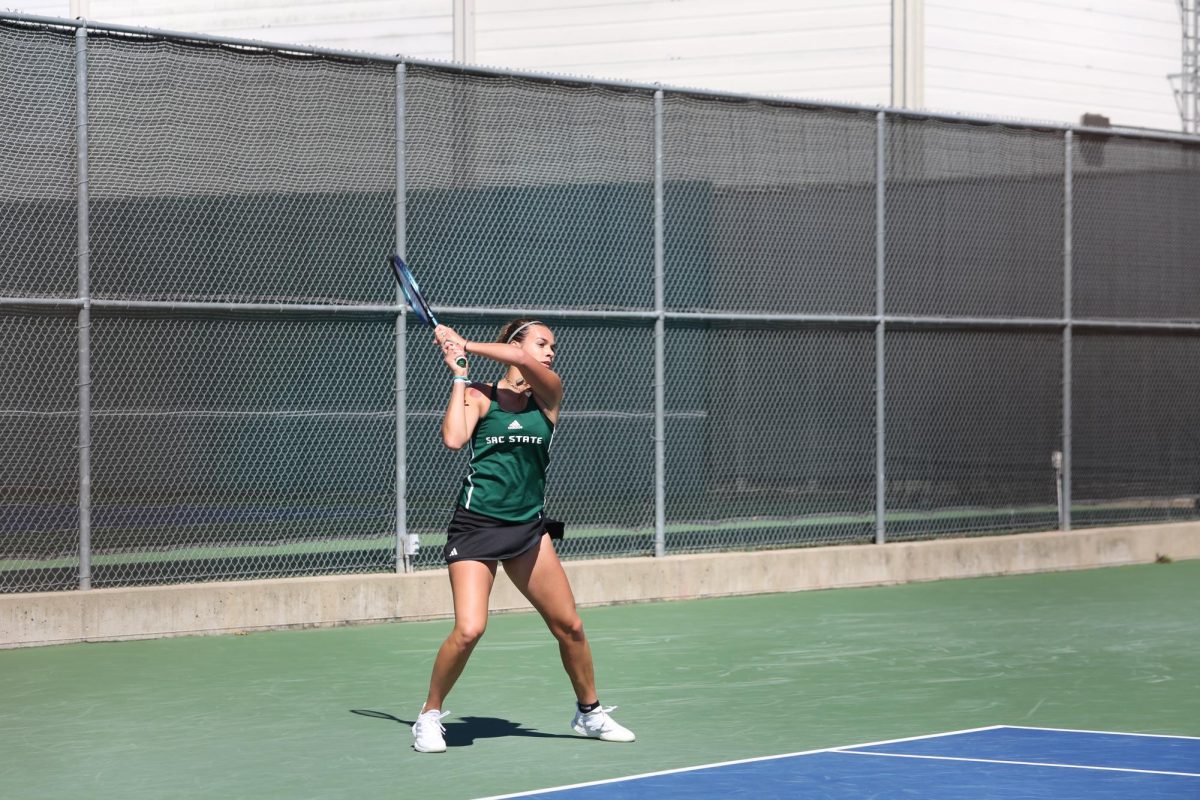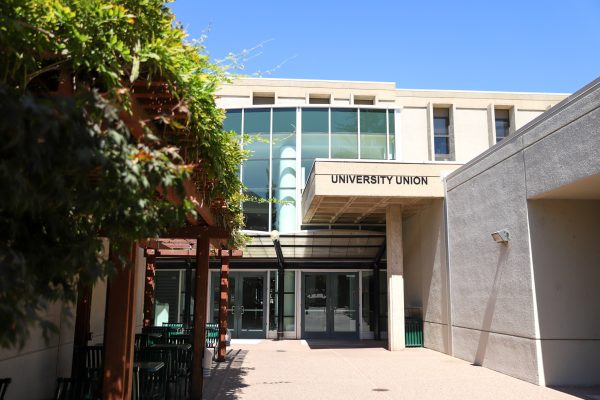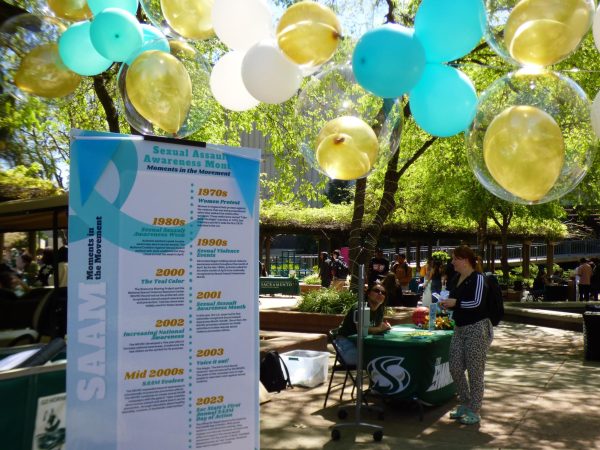Journey Man
January 7, 2007
Sacramento State men’s basketball assistant coach Dwayne Canada has made it. He has a wife, two kids and a job working with a Division I basketball program. But what a long, strange trip it was for Canada to make it.
Born in Ann Arbor, Mich., Canada was the product of a single-parent family and admittedly wasn’t destined to be a basketball player.
“I wanted to be a football player,” he said.
Looking at the man, such a proclamation makes sense. He is tall, broad-shouldered, and looks like he could hit you pretty hard coming through the hole on a draw play. But it took a meeting with a future NBA champion to fuel Canada’s basketball fire.
While attending Taft Junior High School in Detroit, Mich., Canada met a kid by the name of B.J. Armstrong. Armstrong would later be a part of three Chicago Bulls championship teams playing alongside Michael Jordan.
“He didn’t like me,” Canada said of Armstrong. “He was the man at school.”
Canada made it his mission to one day be better than Armstrong. “I either wanted to beat him or be able to join him,” Canada said. The two eventually co-existed well enough to drive the team to a 25-0 record during Canada’s eighth grade year. Both Canada and Armstrong see each other occasionally and Canada now says he’s flattered that Armstrong remembers him.
“This is a three-time NBA champion, and he remembers me?” Canada said. “He was my inspiration to get better,” Canada said. “He never knew it, but he was.”
Shortly after completing junior high Canada moved with his mother and sister to Los Angeles.
Canada wanted to try out for the basketball team at Fairfax High School and admits he was obnoxious back then, showing up at try-outs, bad-mouthing “west coast ball” and saying how he could beat anyone they had on the court.
When his turn came to try out he didn’t do too well. One of the players on the team went up to the coach and told him to keep Canada around. The player liked his spirit and saw his potential. The coach agreed and Canada was put on the junior varsity team. The player who lobbied for Canada was a young man named Jerome Jenkins.
It wasn’t long until Canada and Jenkins were on the same team, taking Fairfax to two consecutive city championships. They comprised the starting backcourt, Jenkins at point and Canada at the two-guard. In Canada’s senior year the team went 25-2 and was ranked No. 2 in the nation.
“We still wear our jackets,” Canada said of the team that took the title. “We put the first banner up on the wall at Fairfax.”
During their high school days, Canada says both he and Jenkins were responsible for raising each other. They started to become inseparable.
“We still go back to Fairfax,” Canada said. “It has a lot of banners up now, but we put that first one up.”
Jenkins said he remembers Canada as a great player and a great leader.
“He always brought fire to the team,” Jenkins said. “He was our rah-rah guy.” But more than the spirit Jenkins remembers Canada’s skill.
“He was a fierce competitor and a great shooter,” Jenkins said. “I could always count on him to hit a shot.
“If we had a three-point line back then I think he could have gone to a big-time college program.”
After high school, Canada enrolled at Eastern Michigan University. A psychology class his freshman year made Canada realize how much life was about to change.
“There were 150 people in this psychology class,” Canada said. “Back in high school everyone knew me, but here no one did.”
Shortly after that experience Canada dropped basketball altogether.
“After I quit basketball I hung out on the streets,” Canada said.
He said that he had even been shot at, but never hit.
“I believe everything happens for a reason,” Canada said.
It was then that Canada remembered something his grandmother always used to tell him.
“My grandma always used to tell me that I was good with children,” Canada said with a smile. “If ever we were at church and a baby was crying they would just hand the baby to me and it would go to sleep.”
With that in mind Canada began to work at group homes for children. One group home he worked at was Our House in Santa Rosa ?” a home for kids who were emotionally disturbed, had learning disabilities and some with physical handicaps. Once his fellow workers saw how good he was the children, Canada was made the P.E. teacher for the home.
After moving back to Michigan, Canada began coaching basketball at Wayne County Community College in the fall of 1999. While at Wayne, Canada dealt with what he calls the hardest thing he ever had to deal with as a coach.
Canada told the story of a player on the team named Lavar. He was a six-foot-eight, 270 pound, 19-year-old kid. One of Canada’s jobs as a coach was to make sure all the players were sleeping in their rooms on road trips.
“I could smell smoke coming from Lavar’s room,” Canada said. “He was sitting on his bed, chain smoking in an obviously jittery way.”
Canada asked what was wrong and Lavar responded that he had been fooling around with a married woman and he feared something was going to happen to him.
When Lavar returned home he was shot dead by the married woman’s husband while taking out the trash.
“I went to his funeral and it was real tough,” Canada said. “It was an open coffin and he was holding a basketball in his hands.”
After that devastating loss Canada received a call from Jenkins in 2002.
“Jenks (Canada’s nickname for Jenkins) called me and told me that he needed his road dog to coach with him at Sac State,” Canada said.
Ever since then the two of them have tried to do at Sac State what they did at Fairfax all those years ago ?” turn a program with little past success into a powerhouse.
“I brought him here to bring fire to the team,” Jenkins said. “He’s once again our rah-rah guy.”
Since Sac State was picked to make the NCAA Tournament this year by Sports Illustrated, it seems Jenkins and Canada just might turn around another program for the better.
Benn Hodapp can be reached at [email protected]








































































































































